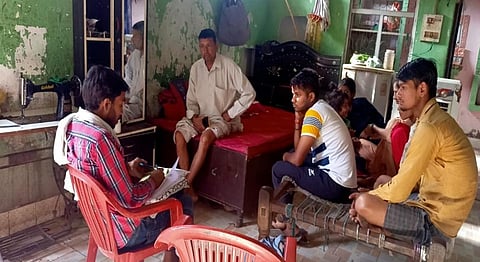From snake charmers to agricultural labourers: A case of Haryana’s Saperas
The Saperas or snake charmers refer to themselves by various regional names in different states in India, such as Kalbeliyas in Rajasthan, Jogis in Punjab and Saperas in Haryana.
In Haryana, Saperas have ‘Nath’ as their common title. The community is dependent on wildlife resources for their livelihood. They are known for their ability to charm deadly snakes.
Were they still entertaining people with snakes? If not, how were they earning their livelihoods? With these questions in mind, I travelled across seven districts of Haryana to locate them and find answers.
During my interaction with Saperas, I came to know that they were not involved in their traditional occupation in the present day and had adopted daily wage labour in agriculture as their main livelihood strategy. Nobody, not even children, were interested in snake-charming. The Saperas are one of India’s 1,262 de-notified, nomadic and semi-nomadic tribes (DNTs) which constitute almost 10 per cent of the country’s population.
Nomadic tribes are an integral part of Indian society. Some nomadic communities were notified as ‘criminals’ under the Criminal Tribes Act, 1871 by the British. Presently, all erstwhile notified ‘criminal’ communities are called ‘De-notified’ communities.
The livelihood of DNTs is based on forests, forest produce and animals. In the past, they roamed freely from one place to another and were respected by society. But, with the advent of colonial rule in India, the tag of ‘criminality’ was attached to them and their traditional occupation became an ‘illegal’ activity.
Apart from the tag of ‘criminality’, various other laws with regard to trade and biodiversity conservation and modernisation have destroyed the traditional occupation of nomadic communities in India.
In the case of the Saperas, the Wild Life (Protection) Act, 1972 and new means of entertainment like television has adversely affected their lives and livelihoods. Surendra Nath (50) of Rewari, said, “Nowadays, no one is involved in snake-charming. We earn a daily living by tilling the fields of landowners.”
They are left with no choice. They go in the morning to villages for bhiksha (begging) and come in the evening with some food, usually grains. Even bhiksha is not sufficient for them as they are not welcomed by villagers.
Balbir Nath (53) of Panipat, said: “We have nothing today, no means to earn, no respect. People consider us criminals because some big babas have done some such dirty acts. So we are also viewed in the wrong way in society.”
A been (gourd pipe) party usually consists of a musical band of seven snake charmers, with each person playing a specific musical instrument. The phenomenon of being a party is quite recent.
According to the community, their ancestors also used to play in been parties. But it had become more popular only in the last 40-50 years. New means of music and entertainment like disc jockeying have made it challenging for them to earn their livelihood through been parties.
Bablu Nath (51) of Jhajjar, said:
We do not earn anything special from the been party because DJ music has destroyed that musical form. The pandemic hadruined things further in the last couple of years.
A little-known fact about Saperas is that they are traditional healers. They earn their livelihood by providing informal healthcare to people. Due to the modern health system, people prefer to visit hospitals instead of them.
Today, two or three households from a village migrate for a couple of months to sell medicine. Bablu Nath, in conversation with me, said: “Do you need surma? The venom extracted from snakes is used to make surma, or eyeliner.”
He said we do not make surma nowadays with venom extracted from snakes, but collect herbs from the forest or buy them from shops, then prepare and sell them.
The youth of the community said they were mainly dependent on daily wage labour. Some worked for private companies on a monthly wage basis. Sachin (21) of Rewari, said:
What will we do by catching snakes? The government has now outlawed it. If we still catch them, the forest department will put us in jail. So it is better to do daily wage-based jobs.
Sunil (30) of Karnal, said: “It has been three years without wearing saffron-coloured clothes and shaving my beard. I am now employed in the scrap industry. No one today goes from our place to beg for alms in the surrounding villages.”
Rahul is a doctoral fellow at International Institute for Population Sciences in Mumbai
Views expressed are the author’s own and don’t necessarily reflect those of Down To Earth


